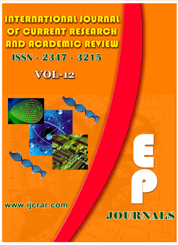Abstract Volume:12 Issue-1 Year-2024 Original Research Articles
 |
Online ISSN : 2347 - 3215 Issues : 12 per year Publisher : Excellent Publishers Email : editorijcret@gmail.com |
Mosquito-borne diseases such as malaria, dengue, chikungunya, and filariasis remain significant public health challenges in tropical countries, including India. Biological control using larvivorous fishes has been implemented worldwide for over a century as an alternative to chemical insecticides. Among these, the mosquito-fish (Gambusia affinis) and guppy (Poecilia reticulata) are the most widely introduced species. This review examines their effectiveness in mosquito larval control, ecological consequences, and implications for biodiversity and public health. Evidence demonstrates that while these species significantly reduce mosquito larvae in controlled and semi-natural environments, their invasive nature has led to severe ecological disruption, including predation on native fish and amphibians, alteration of aquatic food webs, and transmission of parasites. The World Health Organization discontinued its recommendation for Gambusia in 1982 due to ecological risks. Alternative strategies, including the use of indigenous larvivorous fishes and invertebrate predators, may offer safer and more sustainable solutions. This review highlights the urgent need for stricter policies to prevent further introduction of invasive fish species and to promote indigenous alternatives for integrated vector management.
How to cite this article:
Honnananda, B. R., K. Rakesh, K. R. Amoga and Ganapathi Naik, M. 2024. Larvivorous Fish in Mosquito Control: Efficacy, Ecological Risks, and Sustainable Alternatives.Int.J.Curr.Res.Aca.Rev. 12(1): 88-96doi: https://doi.org/10.20546/ijcrar.2024.1201.010



Quick Navigation
- Print Article
- Full Text PDF
- How to Cite this Article
- on Google
- on Google Scholor
- Citation Alert By Google Scholar
